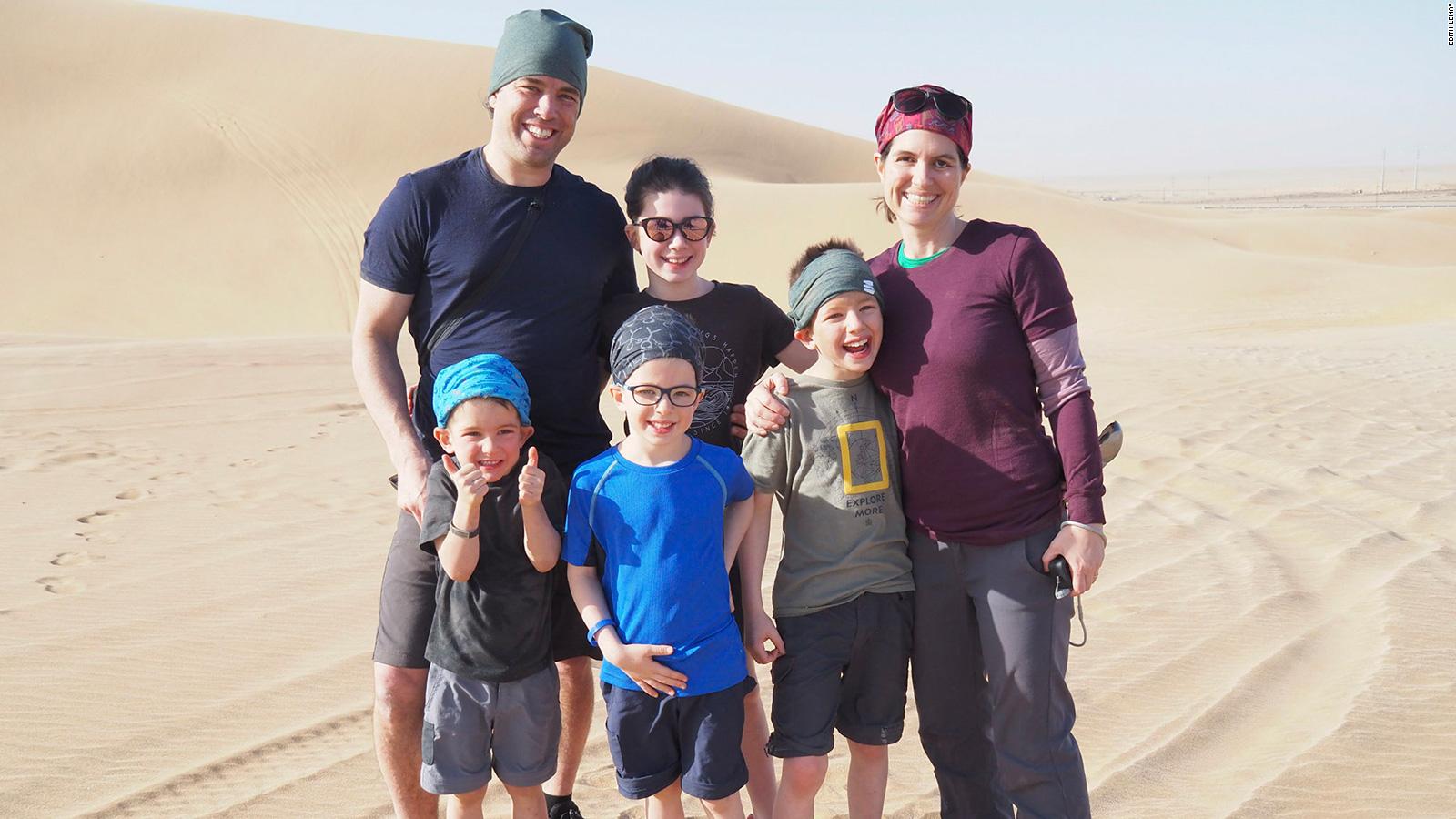Edith Lemay and Sebastien Pelletier have been married for 12 years and have four children. Three of them—Mia, Colin, and Laurent—suffer from a genetic eye condition called retinitis pigmentosa. This disease causes them to have reduced vision and, over time, will lead to permanent blindness. Their second son, Leo, now 9 years old, is more fortunate as he is not affected by the disease.
"There's really nothing you can do to help them. The doctors say there's currently no cure for the disease, nor have they found any effective treatments to slow its progression. We don't know how quickly it will happen, but it's possible the children will lose their sight permanently by middle age," Lemay said.
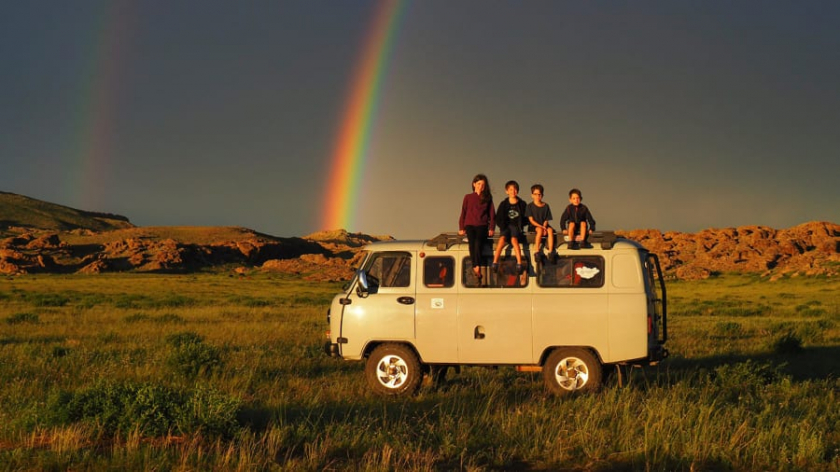
The family took their three children on a trip around the world.
Mia's doctor suggested that her parents help her utilize "visual memory," the way the brain remembers things it has seen. Responding to the doctor's advice, Lemay said, "I won't show the children pictures of elephants in books; I'll take them to see real elephants. And I'll fill their visual memory with the most beautiful images possible." And that's when they planned a year-long trip around the world with their children.
Fortunately, Pelletier, who works in finance, received financial support from his company for the trip. They also had some savings. "It was like a gift from life," they said. Initially, the family of six planned to leave in July 2020, but they only started their journey in March of this year due to Covid-19.
The whole family made a list of things they wanted to do and places to visit before they left. Mia wanted to go horseback riding, Laurent wanted to drink fruit juice while riding a camel... Leaving Montreal (Canada), they went to Zambia, Tanzania, and spent a month in Türkiye. After that, they went to Mongolia and Indonesia. "We tried to let the children see things they had never seen in Canada, and to give them the most memorable experiences."
Besides witnessing the beautiful scenery firsthand, the couple hoped the trip would help their children develop better life skills and become stronger than many others. Lemay explained that their children "need to be truly resilient throughout their lives" because one day they will no longer be able to see. "Traveling is a life lesson, it's wonderful, exciting but also challenging. You might be uncomfortable, tired or disappointed. So you can learn so much from the trips themselves," Lemay said.
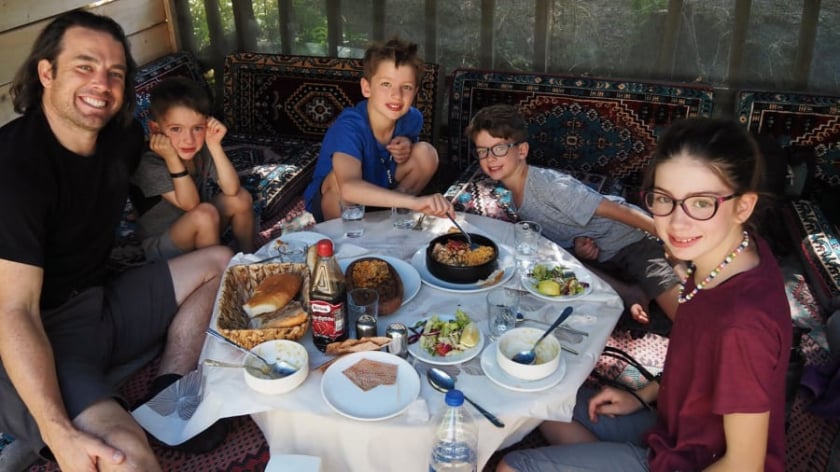
The children have had many wonderful memories with their family.
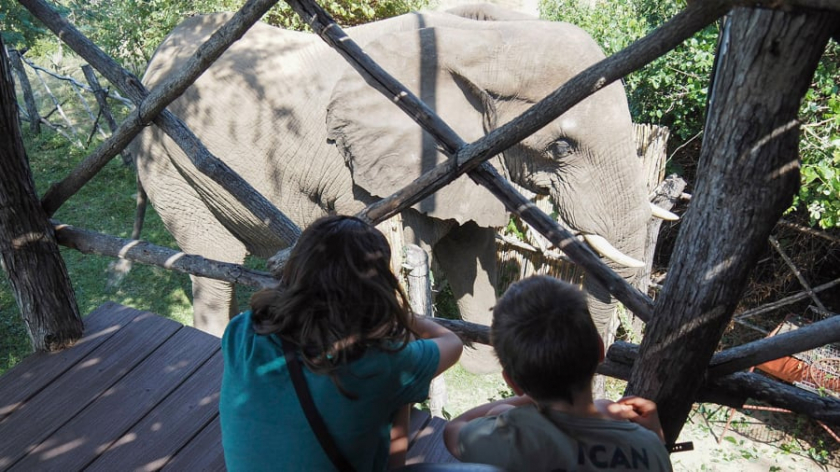

Lemay and Pelletier hope that traveling the world and experiencing different cultures will show their children how fortunate they are, despite the challenges of losing their eyesight later in life.
After six months of traveling, the children adapted to the new life, country, and food very easily. They also didn't know which place would impress them the most, because every place in the world is beautiful. "We didn't prioritize going to specific places to enjoy the most beautiful scenery. Sometimes, just seeing dogs running on the road was the most wonderful thing for the children."
The couple also documented their trip and posted it on their personal page, hoping to inspire and empower others in similar situations. Lemay said that a teacher at a special school in Quebec regularly recounts their family's adventure to her students, who are hearing-impaired. "Every week, she goes to my page and describes the photos or things we share to the students. In a way, they gradually become a part of our journey. Sharing this with others is truly a wonderful gift that makes me happy," Lemay said.
The couple still faces challenges in the future. The fact that their children are no longer able to see is always on their minds. Mia, now 12, learned about her condition when she was 7. But Colin and Laurent, now 7 and 5, are not. Recently, they have started asking questions that are difficult for the couple to answer: "Mom, what does it mean to be blind? Can I drive a car?"
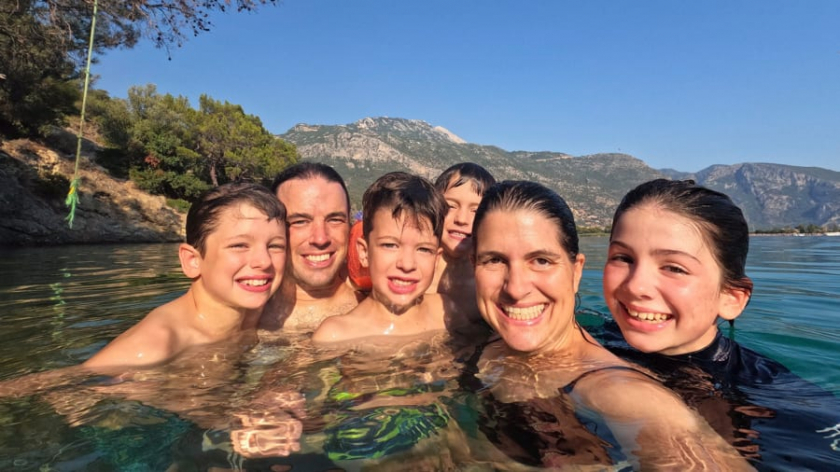
The family received financial assistance from many others to help fulfill the dreams of their three children.
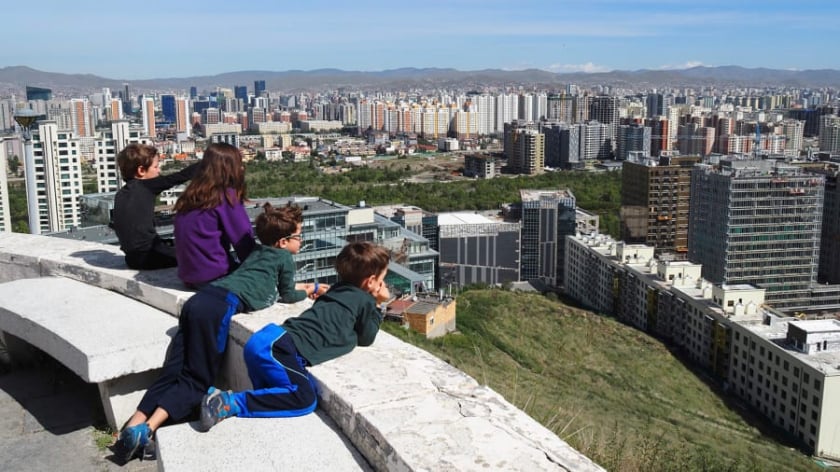
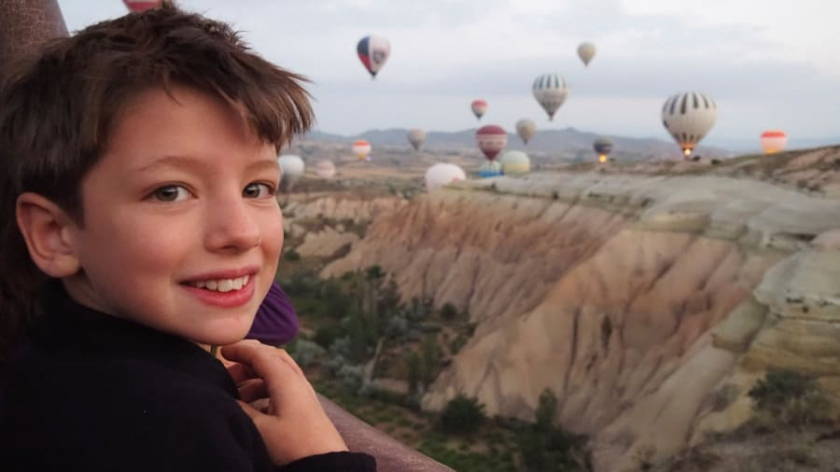
When Laurent asked these questions, he considered it a normal conversation. But for the couple, it was heartbreaking. And for Leo, the only child not affected, he was always acutely aware that his siblings' eye condition "was always a reality of life." However, everyone put aside those worries and "focused on the positive."
The Lemay family plans to return home in March 2023 and is trying to fully enjoy everything. Besides traveling, the children are still learning remotely. Their parents are teaching them along the way. Learning together helps the children bond and continue to support each other in the future.
Lemay and Pelletier still hope their children will never go blind. "Hopefully, in the future, science will advance and this disease will be cured," Pelletier said. But whatever happens, they are still focused on equipping their children with everything they need to face the worst-case scenario.

 VI
VI EN
EN



